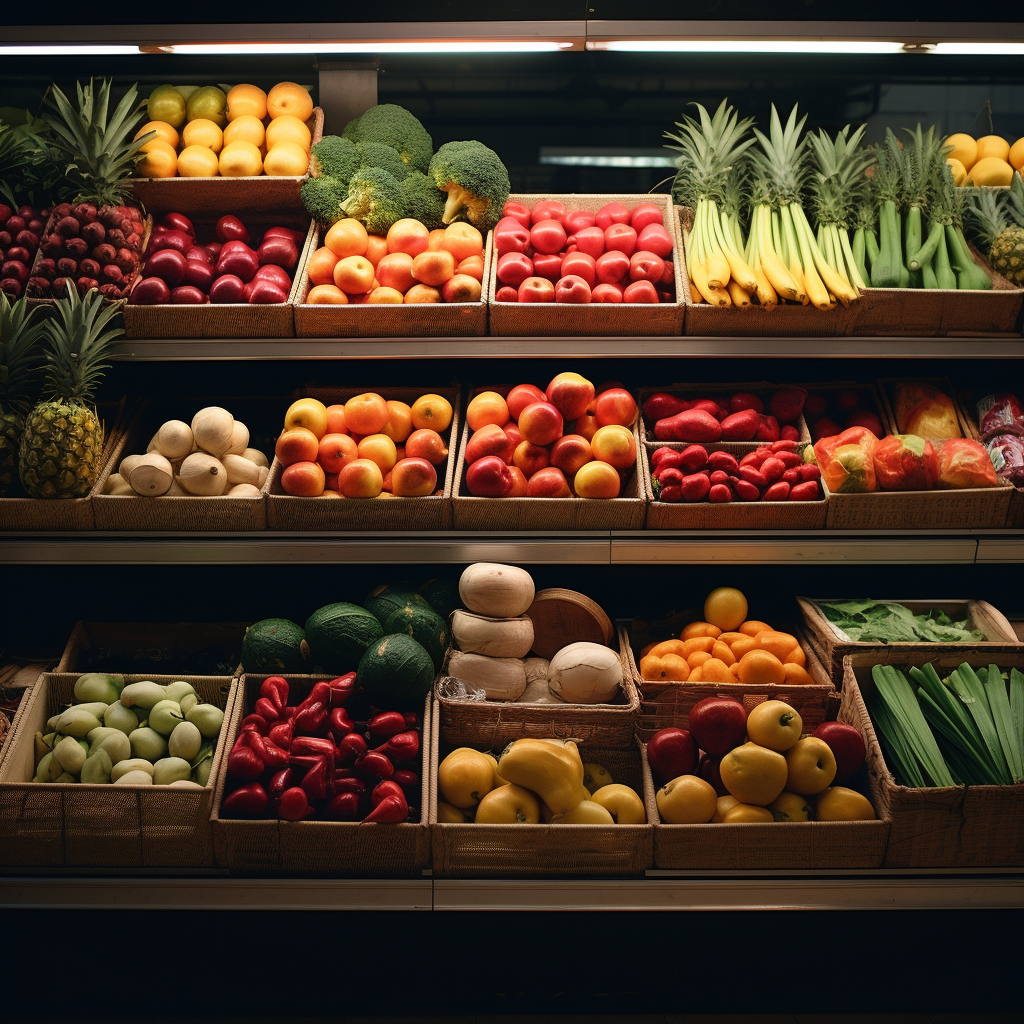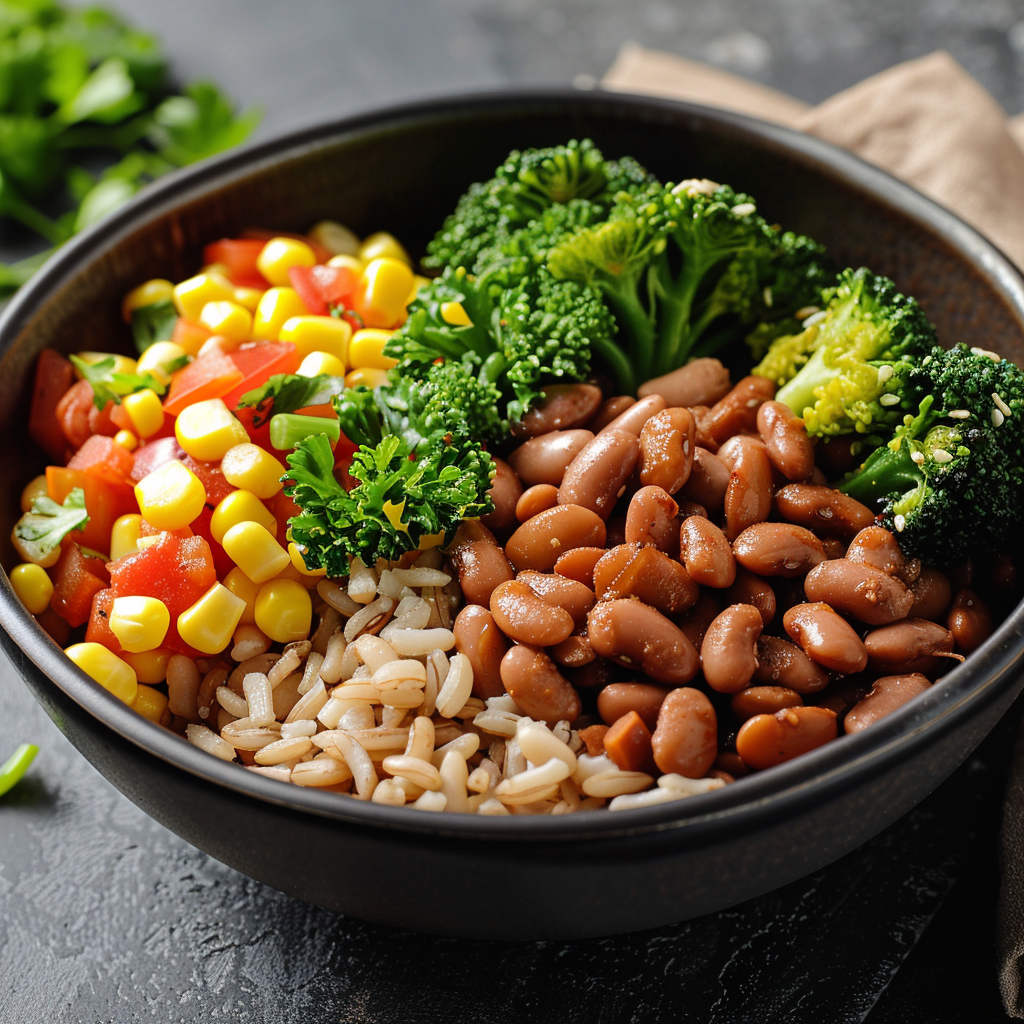By Mike Thomas, NBHWC February 29, 2024

In the heart of a bustling town lived Collette, a vibrant woman determined to embark on a journey toward better health and wellness for herself and her family. With a goal to shed some pounds and introduce more nutritious meals at home, Collette stumbled upon the concept of whole plant-based eating. Intrigued by its numerous health benefits and potential to revolutionize her family’s eating habits, she was nonetheless hesitant. The looming question on her mind was, “Could adopting a plant-based diet fit within our family’s grocery budget?”
Collette’s concerns mirrored those of many individuals considering this lifestyle change. The perception that plant-based eating is more expensive is a common barrier. However, as Collette discovered, with strategic planning and a deeper understanding of plant-based nutrition, not only is it feasible to maintain this healthier lifestyle within a budget, but it can also lead to savings.
The Power of Plant-Based Staples

What should I buy?
Initially, Collette feared the need for expensive, exotic ingredients. However, she quickly learned that the foundation of plant-based eating is incredibly affordable. By focusing on staples such as beans, lentils, whole grains, fruits, and vegetables, Collette was able to significantly reduce her grocery bills.
For example, a family meal centered around meat could cost upwards of $15-$20, considering the price of meat as the main ingredient. In contrast, a hearty, nutritious plant-based meal featuring a lentil stew or a bean-based chili could come down to $5-$10 for the family, showcasing a clear cost benefit without compromising on nutritional value.
Here are some of the regular prices she discovered at her neighborhood supermarket, without any discounts or coupons applied:
Pinto Beans 20 pounds – Less than $15
Brown Rice 15 pounds – Less than $12
Potatoes 10 pounds – Less than $6
Frozen corn- 98 cents
Frozen Broccoli – $1.16
2 Large containers of Whole Grain Oats- Less than $8

Choosing Whole Foods Over Processed

Collette learned that the allure of processed and premade vegan foods could quickly inflate the grocery bill. These items, designed to mimic the flavors and textures of animal products, come at a premium. By choosing whole, minimally processed foods, she found not only did the cost decrease, but the health benefits increased. Swapping out a $6 vegan cheese for a homemade $2 nut-based sauce for pasta nights was a revelation in both taste and economy.
Organic vs. Conventional Produce
While organic produce was initially a concern due to its higher price point, Collette realized that a plant-based diet doesn’t necessitate exclusively organic choices. Learning to prioritize which items to buy organic (using the “Dirty Dozen” list as a guide) and which to buy conventional (the “Clean Fifteen”) allowed her to enjoy a diverse range of fruits and vegetables without straining her wallet. This selective approach enabled her to maintain an average saving of 30% on her produce shopping compared to a full-organic haul.

Understanding Plant-Based Cooking
The initial learning curve in plant-based cooking seemed daunting to Collette. Yet, with resources and free recipes online, she became adept at using affordable ingredients to create delicious, nutritious meals. This skill development transformed her kitchen from a place of financial worry to a hub of health and savings. The transition from a reliance on costly convenience foods to embracing the joy of cooking plant-based meals led to an average meal cost reduction of 50% compared to her previous diet.

Collette’s Realization
Through her journey, Collette realized that not only is plant-based eating feasible on a budget, but it also brought unforeseen benefits to her family’s health and her own weight loss journey. The shift towards a diet rich in whole, plant-based foods resulted in noticeable improvements in energy, overall well-being, and a reduction in grocery bills.
Collette’s story is a testament to the fact that with the right knowledge and approach, adopting a plant-based diet can be both a healthful and economically wise decision. For those inspired by Collette’s journey and looking to embark on their own path towards health and wellness through plant-based eating, resources and guidance are available at CoachMikeThomas.com, where the goal is to make healthy living accessible and affordable for everyone.
Call to Action:
If you’re considering taking on a Whole Food Plant-Based (WFPB) lifestyle and curious about how it can fit into your life and budget, I invite you to reach out to me for a 30-minute no-obligation conversation. Together, we can explore how you can achieve your health and wellness goals, just like Collette, without breaking the bank.

Coach Mike
Remember, the journey to health doesn’t have to come at a premium. With a focus on whole, minimally processed foods, strategic shopping, and an embrace of plant-based cooking, anyone can follow in Collette’s footsteps towards a healthier, happier life without breaking the bank.
To Your Better Health!
Mike
Learn More about Mike HERE
This blog is for educational and informational purposes only and solely as a self-help tool for your own use. I am not providing medical, psychological, or nutrition therapy advice. You should not use this information to diagnose or treat any health problems or illnesses without consulting your own medical practitioner. Always seek the advice of your own medical practitioner and/or mental health provider about your specific health situation. For my full Disclaimer, please go to CoachMikeThomas.com.
